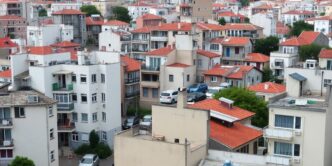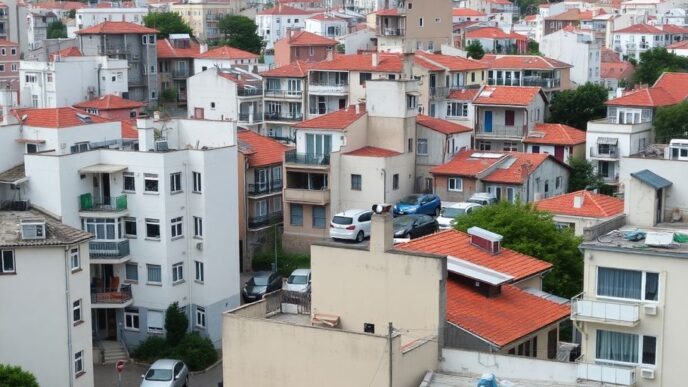Rising Luxury Property Prices in Lisbon
Lisbon’s Position in Global Luxury Market
Lisbon is becoming a hot spot for luxury real estate. In fact, it is now the 11th city in the world where luxury home prices are rising the fastest. This trend is making it more expensive than cities like Madrid, Berlin, and Milan. The city’s charm, culture, and climate are attracting many wealthy buyers from around the globe.
Factors Driving Price Increases
Several factors are pushing prices up:
- High Demand: Many people want to live in Lisbon, leading to a shortage of homes.
- Limited Supply: There aren’t enough new homes being built to meet the demand.
- Foreign Investment: Even with recent changes to laws aimed at limiting foreign buyers, interest in Lisbon remains strong.
Impact on Local and International Buyers
The rising prices are affecting both local residents and international buyers. Here are some key points:
- Home Ownership Challenges: Many locals find it hard to buy homes due to high prices, making ownership seem out of reach.
- Increased Rental Costs: As buying becomes harder, more people are renting, which drives up rental prices.
- Government Response: The government is trying to create more affordable housing options, but the allure of Lisbon continues to attract foreign investors, complicating the situation further.
In November, prices rose by 5.8%, highlighting the ongoing challenges in the market. The situation is creating a complex environment for both buyers and renters in the city.
Trends in the Algarve Real Estate Market
Rebound in Resort Market
The Algarve’s resort market is experiencing a strong recovery. After a period of uncertainty, investor confidence is rising, leading to a stable growth in property prices. Many buyers are looking for vacation homes, which has boosted the market significantly.
New Developments and Investments
Several new projects are underway, including:
- Luxury resorts that cater to high-end buyers.
- Affordable housing options to meet local demand.
- Eco-friendly developments that focus on sustainability.
These developments are attracting both local and international investors, making the Algarve a hot spot for real estate.
Impact of Weather on Property Demand
The Algarve is known for its mild climate, which plays a crucial role in property demand. The sunny weather attracts many buyers, especially from colder regions. This consistent demand helps maintain property values, making it a desirable location for investment.
| Year | Average Property Price (€) | % Change from Previous Year |
|---|---|---|
| 2022 | 250,000 | +5% |
| 2023 | 262,500 | +5% |
| 2024 | 275,000 | +4.75% |
In summary, the Algarve’s real estate market is on an upward trend, driven by a rebound in the resort sector, new investments, and the region’s appealing weather. Buyers are increasingly interested in both luxury and affordable options, making it a dynamic market to watch.
Portugal’s Rental Market Dynamics
Rising Rent Prices Across Portugal
The rental market in Portugal has seen a significant increase in prices. In fact, rents have gone up by 5.1% over the past year. This trend is affecting many cities, making it harder for residents to find affordable housing. Here are some key points about the current situation:
- Lisbon has the highest rental prices, making it challenging for many locals.
- Algarve is also experiencing rising rents, especially in popular tourist areas.
- Many families are feeling the pressure as they try to keep up with these increasing costs.
Demand for Rental Properties
The demand for rental properties in Portugal is strong, driven by several factors:
- Tourism: The influx of tourists creates a need for short-term rentals.
- Remote Work: More people are moving to Portugal for its quality of life and work-from-home opportunities.
- International Buyers: Many foreign investors are purchasing properties, which increases competition for rentals.
Government Policies Affecting Rent
To address the rising rental prices, the government has introduced several policies:
- Rental Subsidies: Programs like the Municipal Subsidy for Affordable Rentals (SMAA) help families struggling with rent.
- Regulations on Local Accommodation: New rules are being considered to limit the number of short-term rentals, aiming to protect long-term residents.
- Support for Displaced Professionals: Initiatives are in place to assist those affected by rising costs, ensuring they can find suitable housing.
Overall, the rental market in Portugal is dynamic and evolving, with various factors influencing prices and availability. As the market continues to change, both local and international buyers must stay informed to navigate these challenges effectively.
The Influence of International Buyers on Portugal’s Property Market

American Buyers Post-Election
After the recent presidential election in the United States, there has been a noticeable increase in interest from American buyers looking to invest in Portugal. Many are attracted by the Golden Visa program, which offers residency in exchange for property investment. This trend is expected to continue as more Americans seek opportunities abroad.
European Investment Trends
European buyers, particularly from countries like France, Germany, and the UK, are also showing a strong interest in the Portuguese property market. The following factors are driving this trend:
- Affordable prices compared to other Western European countries.
- A stable economy and favorable climate.
- The appeal of Portugal’s lifestyle and culture.
Impact of Golden Visa Program
The Golden Visa program has significantly influenced the property market in Portugal. Here are some key points:
- It has attracted a large number of foreign investors, boosting the real estate sector.
- The program has led to increased property prices in popular areas, making it harder for locals to afford homes.
- It has encouraged the development of new properties, particularly in urban areas like Lisbon and Porto.
Overall, the influx of international buyers is reshaping Portugal’s property landscape, creating both opportunities and challenges for local residents.
Sustainability and Innovation in Portuguese Real Estate
Eco-Friendly Developments
Portugal is making great strides in sustainable architecture. Many new buildings are designed to be eco-friendly, using materials that are good for the environment. Here are some key features:
- Use of renewable energy sources like solar panels.
- Incorporation of green spaces in urban areas.
- Focus on reducing the carbon footprint of buildings.
Technological Advancements in Construction
The construction industry in Portugal is embracing new technologies to improve efficiency and sustainability. Some advancements include:
- 3D printing for building components.
- Use of smart home technologies to enhance energy efficiency.
- Adoption of modular construction techniques to reduce waste.
Government Initiatives for Sustainable Housing
The Portuguese government is actively promoting sustainability in housing through various initiatives:
- Incentives for green building practices.
- Support for affordable housing projects that meet sustainability standards.
- Programs aimed at educating builders and buyers about the benefits of eco-friendly homes.
Portugal is leading in sustainability and innovation in real estate, setting an example for other countries. The commitment to eco-friendly practices not only benefits the environment but also creates healthier living spaces for residents.
Navigating the Mortgage Landscape in Portugal

Trends in Mortgage Interest Rates
In Portugal, mortgage interest rates have been fluctuating recently. Here are some key points to consider:
- Current Rates: As of now, the average mortgage interest rate is around 3.5%.
- Historical Trends: Rates have increased from 2.5% last year, reflecting global economic changes.
- Future Predictions: Experts predict rates may rise further, potentially reaching 4% by the end of 2025.
Challenges for First-Time Buyers
First-time buyers in Portugal face several challenges:
- High Property Prices: Many areas, especially in Lisbon and the Algarve, have seen significant price increases.
- Strict Lending Criteria: Banks often require a substantial down payment, typically around 20% of the property value.
- Limited Availability: There is a shortage of affordable homes, making it harder for new buyers to enter the market.
Role of Life Insurance in Mortgages
Life insurance is often a requirement when taking out a mortgage in Portugal. Here’s why:
- Protection for Lenders: It ensures that the mortgage is paid off in case of the borrower’s death.
- Peace of Mind: Buyers can feel secure knowing their family will not face financial burdens.
- Cost Considerations: Life insurance can add to the overall cost of the mortgage, so it’s essential to factor this into your budget.
In summary, navigating the mortgage landscape in Portugal requires understanding current trends, recognizing challenges, and considering the role of life insurance. For those looking to buy a home in Portugal, it’s crucial to be well-informed and prepared for the process ahead.
The Future of Property Prices in Portugal

Predictions for 2025 and Beyond
As we look ahead to 2025, experts predict that property prices in Portugal will continue to rise. The median value per square metre has already reached new heights, with the average property price increasing from the country’s average of €763 per square meter. This trend is expected to persist due to several factors:
- Increased demand from international buyers.
- Limited housing supply in key areas.
- Economic growth boosting local purchasing power.
Factors Influencing Price Stability
Several elements will play a crucial role in maintaining price stability in the Portuguese property market:
- Government policies aimed at controlling inflation.
- Interest rates that affect mortgage affordability.
- Investment in infrastructure that enhances property values.
Regional Variations in Price Trends
Price trends can vary significantly across different regions in Portugal. Here’s a brief overview:
| Region | Price Trend | Key Factors |
|---|---|---|
| Lisbon | Rising | High demand, luxury market |
| Porto | Stabilizing | Increased supply, local economy |
| Algarve | Increasing | Tourism, second-home buyers |
| Central Portugal | Moderate | Affordable options, rural appeal |

![boats docked near seaside promenade]](https://theportugaldaily.com/wp-content/uploads/2024/11/54516398thumbnail.jpeg)


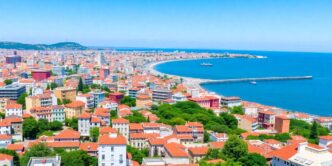
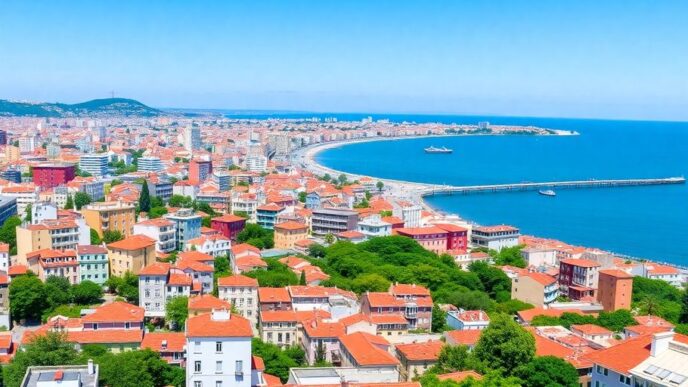

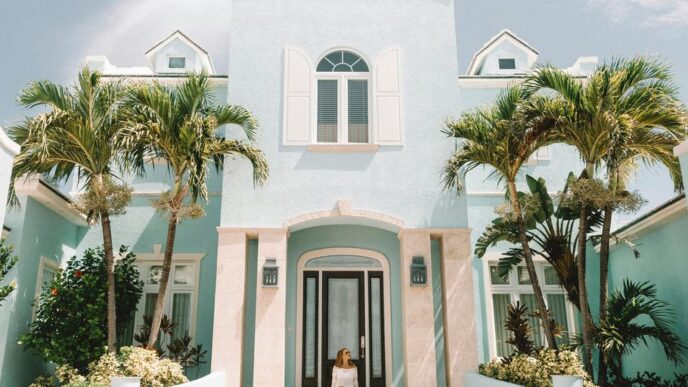
![boats docked near seaside promenade]](https://theportugaldaily.com/wp-content/uploads/2025/01/68dde244thumbnail-332x166.jpeg)
![boats docked near seaside promenade]](https://theportugaldaily.com/wp-content/uploads/2025/01/68dde244thumbnail-688x387.jpeg)
